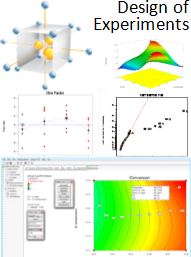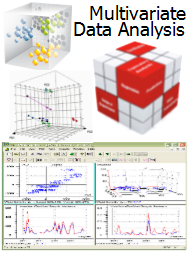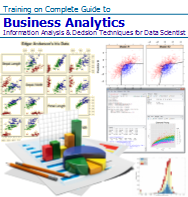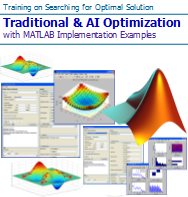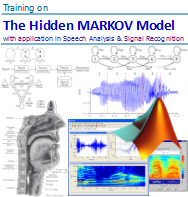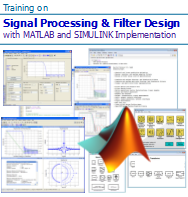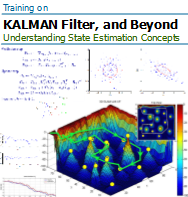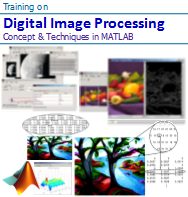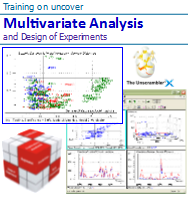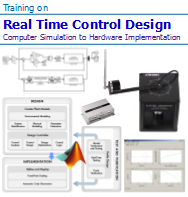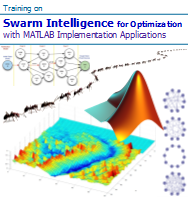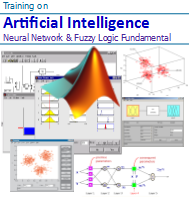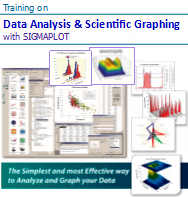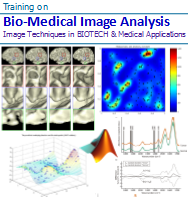Click here to see the online version.
" understand applicability and concept of DOE in details
followed by analysis and interpretation of results
in a simple and understandable manner ...
interpret complex data quickly and confidently using
tools of chemometrics and multivariate analytical methods..."
Data analysis is a vital part of science today and in assessing quality, modern data sets contain many variables where the most interesting trends are hidden within a combination of the variables. Using the lastest multivariate techniques with design of experiments, participants will learn how to interpret complex data quickly and confidently. You will discover the secret of overviewing data tables and also learn how to build robust predictive models that translate data into decisions.
Scientists and Engineers no longer can afford to experiments in a trial-and-error manner, changing one factor at a time, the way Edison have done in developing the light bulb. A far more effective method is to apply a computer-enhanced, systematic approach to experimentation, one that considers all factor simultaneously. This approach is known as Design of Experiments (DoE), and corporations across the globe are adopting it as a cost effective way to solve serious problems afflicting to their operations. DoE provides information about the interaction of factors and the way the total system works, something not obtainable through testing one factor at a time while holding other factor constant. Another advantage of DoE is that it shows how interconnected factors respond over a wide range of values, without requiring the testing of all possible values directly. |
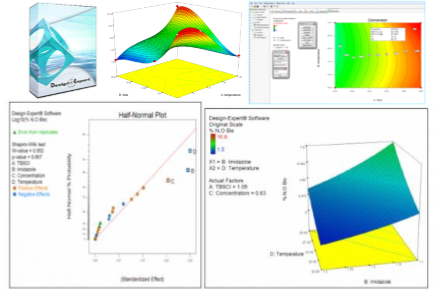 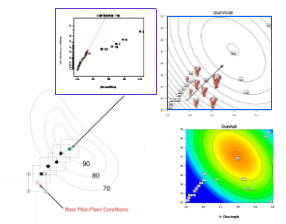 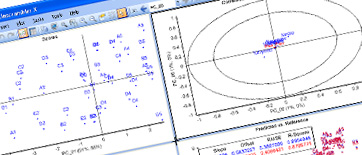 |
Multivariate analysis is used widely in many industries, from raw material analysis and drug discovery in the pharmaceutical industry, early event detection and gasoline blending in refineries, right through to predicting future market trends in business intelligence applications. It can be used for measuring data sets with many input variables or for investigating the trends in time series data, all of which provide a better understanding of a given issue and often result in resource and time savings. It can generates data models that can be used for on-line prediction and classification and it also generates data models for faster product and process optimization for application in Spectroscopy, Chemometrics, Sensometrics, Process Analytical Technology, Product Development and Quality Control. |
DoE Course Benefits Carefully selected course exercises and application examples provide participants with Theory-to-Skills Building knowledge transfer, enabling them to achieve proficiency in applications development. Highly interactive workshop with practical examples and exercises to understand applicability and concept of DOE in details followed by analysis and interpretation of results in a simple and understandable manner. Statistical software Design Expert will be used during the workshop
|
MVA Course Benefits |
|||||||||||||
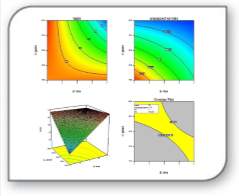 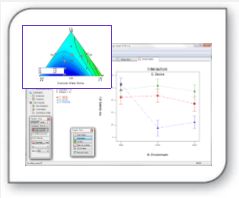 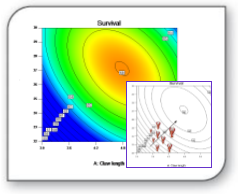 |
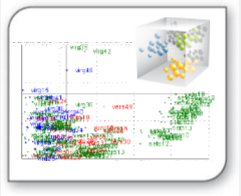 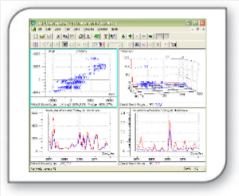 |
|||||||||||||
DOE Course Outline
|
MVA Course Outline
. |
|||||||||||||
Who Should Attend Prerequisites Note: Due to the nature of the course and the learning expectations, the availability seats are limited. You need to register early to obtain confirmation of your space. |
||||||||||||||
Venue : Solutions 4U Training Center @ Puchong 10 % Early Registration Discount before 19 DEC 2020 10 % Group Discount for 3 or more from same organization |
||||||||||||||
Other upcoming courses to enrich and enhance your technical computing capability and data anaysls skill-set, Just click onto the Title to find out more details.
|
||||||||||||||
Brought to you by |
||||||||||||||
| The updates of our training program are sent to you, as we think that they might be of interest and benefit you. Please help to forward to others who may be interested. However, you may unsubscribe if you do not wish to receive further mailing from us. Thank you. | ||||||||||||||
